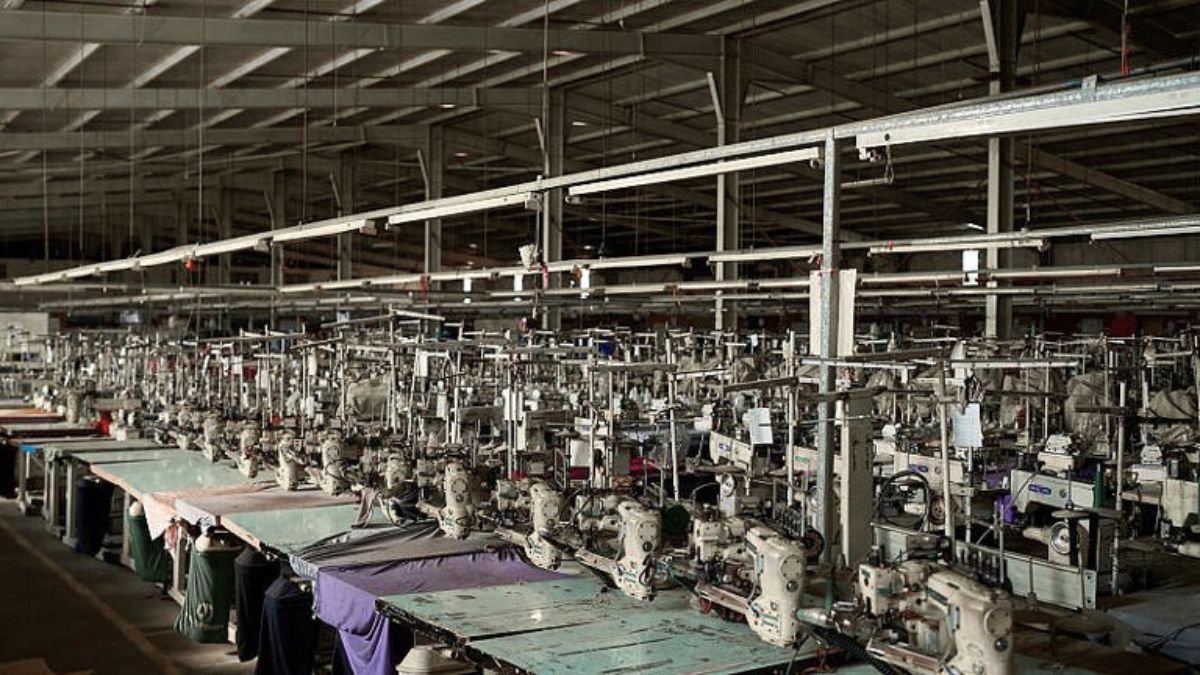Reduced U.S. Tariff Fails to Undo Damage to Lesotho’s Textile Industry

MASERU (Reuters) – The recent reduction of a steep U.S. tariff on goods from Lesotho is not enough to reverse the harm already inflicted on the small African nation’s textile sector, according to government officials and industry leaders.
An executive order issued by U.S. President Donald Trump last week lowered Lesotho’s tariff rate to 15 percent, a significant drop from the 50 percent duty threatened in April—a level that would have been the highest for any U.S. trading partner.
Leaders in the nation’s textile industry, which supplies garments for prominent U.S. retailers like Levi’s (NYSE:LEVI) and Walmart (NYSE:WMT), stated that months of uncertainty preceding the decision had already wrecked the sector, resulting in cancelled orders and widespread job cuts.
Teboho Kobeli, the founder and managing director of Afri-Expo Textiles, expressed this sentiment from his factory in Maseru. “We were on the verge of building (our) American market,” he told Reuters.
Kobeli explained that the U.S. market accounted for 10% of his firm’s output, or about $1 million annually, and that he was forced to dismiss 200 employees—40% of his total staff—when orders vanished after the April tariff announcement. “That is a lot lost,” he added.
Lesotho, a poor and landlocked nation with a GDP of just over $2 billion, had been mocked by Trump in March as a country “nobody has ever heard of.”
According to Trade Minister Mokhethi Shelile, the new 15% rate will still leave Lesotho at a competitive disadvantage against other African textile producers like Kenya and Eswatini, which face a lower 10% U.S. tariff. “We have close to 12,000 jobs that are directly on the firing line because of this tariff,” Shelile informed Reuters.
The textile sector is the nation’s primary export industry and largest private-sector employer, heavily reliant on the Africa Growth and Opportunities Act, a U.S. trade program granting duty-free access to eligible African nations. The industry provides jobs for approximately 40,000 people and constitutes around 90% of manufacturing exports, as per Oxford Economics.
The human toll of the trade uncertainty is evident in the story of Matsoso Lepau, a 48-year-old who was let go from his position at protective outerwear maker Leo Garments in April. “I have a big problem because the money that I was making is not there anymore,” he commented, noting his former monthly earnings were equivalent to $167. “Now that Mr Trump has lowered the tariffs, I am still hoping that we will get our jobs back.”
Despite the losses, Kobeli of Afri-Expo Textiles expressed optimism about rebuilding his business now that a fixed 15% rate provides clarity. He noted that the ambiguity of U.S. trade policy had weighed on investor and retailer decisions globally. “It was a global problem, even the buyers in America were stagnant as they did not know where to go… Now with the 15% we are starting to talk, it’s not like we were affected alone,” he remarked.
WMT: A Bull or Bear Investment?
Don’t let the next major market move pass you by! Get ahead of the trend with ProPicks AI – six model portfolios featuring AI-selected stocks with outstanding performance this year. In 2024 alone, ProPicks AI spotlighted 2 stocks that soared over 150%, 4 others that jumped over 30%, and 3 more that advanced over 25%. This is a remarkable success rate. With portfolios designed for Dow stocks, S&P stocks, Tech Stocks, and Mid Cap stocks, you have multiple avenues to explore for wealth creation. If WMT is on your investment radar, it would be highly beneficial to know if it has been featured on the ProPicks AI lists.




